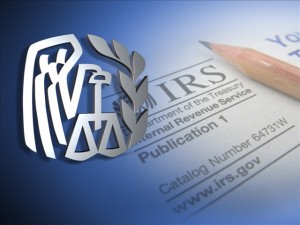 As tax identity theft impacts more and more consumers, a new survey from TrustedID – the nation’s most comprehensive identity protection and privacy service – indicates that more than half of consumers believe that the IRS is 100% responsible for ensuring that no one can file a return in their name and claim their taAs tax identity theft impacts more and more consumers, a new survey from TrustedID – the nation’s most comprehensive identity protection and privacy service x refund.
As tax identity theft impacts more and more consumers, a new survey from TrustedID – the nation’s most comprehensive identity protection and privacy service – indicates that more than half of consumers believe that the IRS is 100% responsible for ensuring that no one can file a return in their name and claim their taAs tax identity theft impacts more and more consumers, a new survey from TrustedID – the nation’s most comprehensive identity protection and privacy service x refund.
According to the United States House Committee on Oversight & Government Reform, over 1.1 million tax returns were filed by identity thieves for the 2011 processing year, up more than 21 times from just 51,700 fraudulent returns in 2008. In addition, the Treasury Inspector General for Tax Administration believes that tax identity theft could cost the IRS approximately $21 billion in fraudulent returns in the next five years.
This fast growing problem has created new challenges that will require the IRS to confront the latest opportunity for identity thieves- stealing tax refunds. The National Taxpayer Advocate, Nina Olson, recently reviewed this growing problem, finding that the IRS has been ineffective in assisting tax identity theft victims, citing internal organizational as well as procedural issues. While the IRS is under fire, over 50% of consumers still believe that the IRS is trustworthy when it comes to protecting their Social Security number and other private information.
“Tax time is among the most vulnerable for consumers with all of their most valuable personal information being compiled and shared,” said Scott Mitic, Chief Executive Officer, TrustedID. “The IRS must find a way to protect consumers from falling victim to this growing threat and work to develop a swift resolution for victims. Additionally, while the IRS has some trust with consumers, the growing number of tax identity theft cases creates a serious and growing gap between perception and reality.”
The TrustedID survey also found that more than half of the consumers surveyed were unaware of and confused about what tax identity theft is and two-thirds of consumers did not have a good understanding of tax identity theft.
“Tax identity theft is a big problem that has grown exponentially over the course of a few short years. The IRS has an obligation to increase awareness of this threat and consumers need to better familiarize themselves with the issue and how to protect themselves, especially since effective assistance might not be available once their identity has been compromised,” added Mitic.
To help proactively safeguard information during tax season, TrustedID offers the following tips:
Monitor your tax documents closely. Make a list of everyone who pays you, including employers, banks and brokerages, and make sure you receive hard copies in the mail of what they send to the IRS.
Beware of IRS-related scams. If you receive an email or phone call asking for your personal or financial information, delete it or send it to the FTC at spam@uce.gov for investigation. The IRS will never email taxpayers about issues related to their accounts or ask for your Social Security number or financial details over the phone. If you have any doubt whether a contact from the IRS is authentic, call them directly to confirm it.
Review carefully if filing with a 3rd Party. When using software, CPA or national tax agency to prepare your taxes, ensure you are reviewing all the information carefully and that all the original paperwork is returned to you.
Be diligent if you are e-filing. With e-filing, evidence of fraud is difficult to find—there are no signed tax forms, envelopes, or fingerprints. It’s easy for criminals to e-file using a real name and SSN and a phony W-2 or Schedule C. If you’re filing your taxes online, be sure to use updated firewall, antivirus, and spyware software.
Take precautions if mailing your filing. If filing by mail, walk the envelope inside of the post office and hand it to an employee. Too much mail is stolen out of the USPS and driveway mailboxes. Send your return by certified mail so that you know it has arrived safely. This also sends a message to each mail carrier that they had better provide extra protection to the document they are carrying.
For more information about TrustedID and survey results, visit www.trustedid.com.








